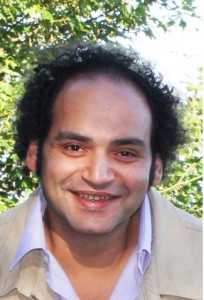
I woke up after a short nap on Thursday afternoon to a friend of mine calling in panic and asking me in a hasty and shaky tone: did you see Morsy’s decisions? I ran to my computer and started surfing the internet to find out what the president had unleashed while I was asleep. I found out that President Morsy was wandering in the legislation valley he made for himself and while he was there, he came up with new presidential decrees in the form of constitutional declarations.
After quickly skimming the declaration, it did not make any sense to me. I thought this was due to interrupted sleep and lack of caffeine. Two cups of coffee later, I thoroughly read the declaration, and to my surprise, it still did not make any sense!
Morsy’s decisions were not the only surprise, the timing was baffling and the reactions these decisions created on different levels were startling too. The actual content of the decisions is far more than catastrophic. Morsy has declared himself an ultimate authority, doing away with the faint traces of accountability the Egyptian political system had.
The declaration reintroduced Egypt to an era of unchecked power, only this time, within a constitutional framework. Once again, Egypt resides under conditioned democracy. A democracy that could be easily crushed by a low ceiling and a system that is designed by the strongest party to serve its own interests, this is the main framework created by Morsy’s recent decisions. What struck me the most is the president’s rationalisation of his own decisions.
The president, his administration and many Muslim Brotherhood spokesmen and sympathisers, lobbyists, analysts and outright hypocrites are handling the matter the other way around.
The pro-Morsy rationale rests mainly on trusting the president and having confidence in his judgment and his wisdom that will ensure proper use of his new unchecked authority. I’ve heard lots of “he has to be given the chance,” and “he needs full authority to change things,” and “he is the democratically elected president” as well as “Egyptians need to trust each other” and many similar statements.
Now, I am not about to debate whether Egyptians do trust their president or they don’t, for this is a debate that requires numbers, surveys and polls. Therefore, I cannot speak on behalf of my fellow Egyptians, but I can speak for myself. And as for myself, I do not trust the president, not just Morsy; I do not trust any president. I believe that humans are easily corrupt with power and that presidents are always good candidates for that corruption.
The matter is not one of trusting a president; it is a matter of trusting a system. Morsy and his supporters are asking us to trust a president who will work within a system of absolute authority. Egypt is not in need of a trustworthy man, it rather needs a system that will make the president, regardless of who he is, accountable to the people, and only then he could be trusted.
I am also puzzled by the president’s logic. Morsy says that through these exceptional and non-constitutional measures, he will be able to fulfill the demands of the revolution. Something within that argument does not add up. Morsy’s access to power was facilitated above all by the revolution’s commitment to legal procedure. If the different forces within the revolution had resorted to exceptional and non-constitutional measures, the series of elections that the Muslim Brotherhood won would not have been held.
All of us (including Morsy) came to where we are today due to a political process supervised by different branches within the state. Therefore, Morsy’s legitimacy is not a revolutionary one; it is an institutional legitimacy that originates from elections supervised by state institutions.
Morsy and the Brotherhood rejected all calls for revolutionary exceptional measures during the transitional phase, why resurrect them now when they have power? Moreover, why should we trust someone who suddenly decided to have a major change of course without any rational reasons?
The timing was no less strange than the content. I believe that Morsy saw his role in Gaza as a breakthrough in Egypt’s regional role, and he wanted his victory in negotiation to be marketed domestically. The only problem he had inside Egypt was the ongoing demonstrations in Mohamed Mahmoud Street.
The president thought that he could calm things down by promising new trials for those blamed for killing protesters in protests on the same street last year. This way, he would earn points in the street that would be added to his diplomatic victory in Gaza. However, while doing so, he had to guarantee some winnings for himself and the Brotherhood, hoping that one would balance out the other. But this narrow and shortsighted vision ignored two issues.
First, the Mohamed Mahmoud protests are not just about the trials, they seek the collapse of a whole inefficient and corrupt matrix, and second, the forces of opposition are more organised now than four months ago when Morsy came to office. Therefore, Morsy made the wrong calculations at the wrong time.
Morsy’s declaration can only be interpreted in one way, putting down the roots of a new dictatorship. There is no way these decisions could be treated as separate items, it is a whole package. A president who makes the judicial authority inferior to his and makes his decisions immune to all forms of petition cannot be trusted to protect individual rights and uphold the demands of a democratic revolution. Welcome to Egypt’s post-revolutionary dictatorship.







